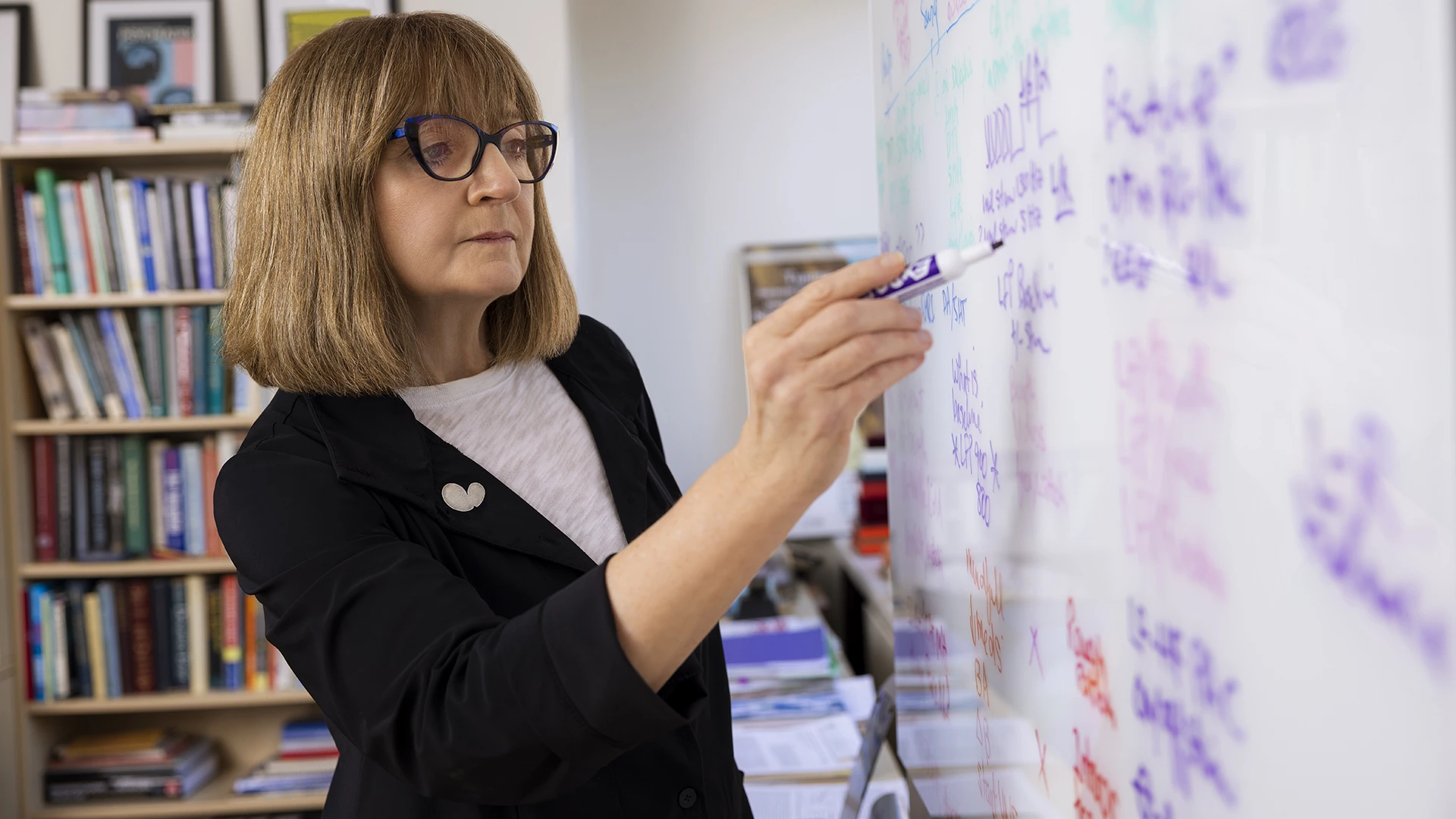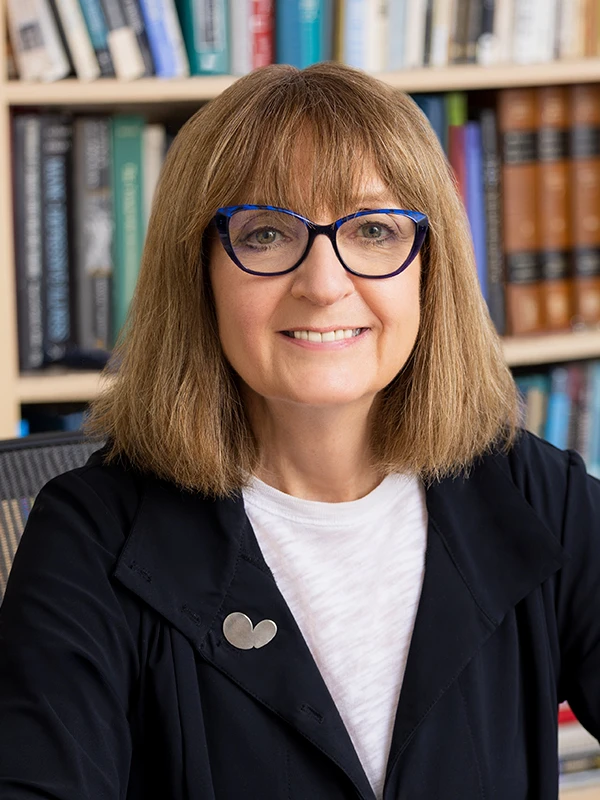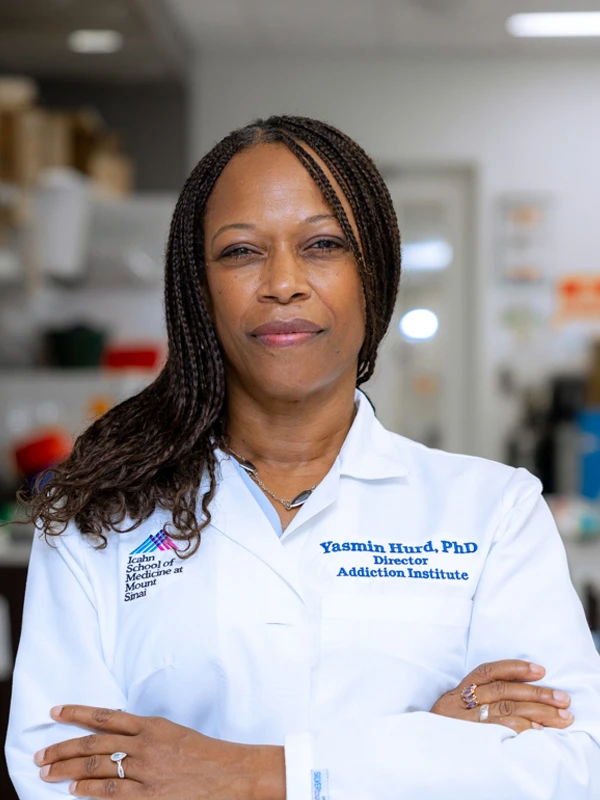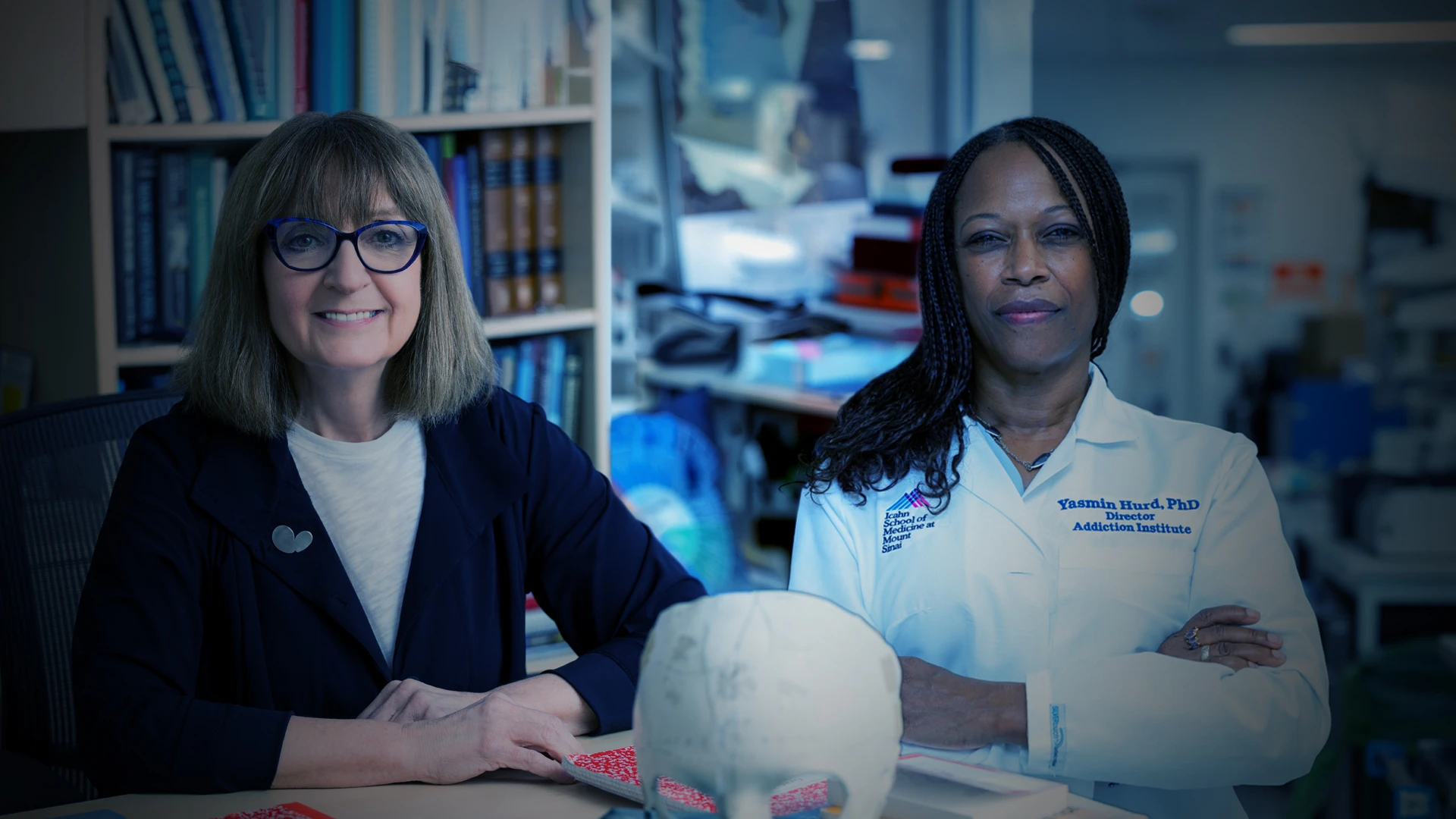In May 2022, two Mount Sinai researchers—Yasmin Hurd, PhD, and Helen Mayberg, MD—were elected to the National Academy of Sciences (NAS), which recognizes individuals for their distinguished and continuing achievements in original research. Drs. Hurd and Mayberg are among six Mount Sinai faculty members who have achieved such recognition—one of the highest honors a scientist can receive.
Dr. Mayberg: A Pioneer in Mapping Molecular Mechanisms of Depression

Helen Mayberg, MD
The idea of studying a psychiatric disorder as a neurological one was novel, if not heretical, when Mount Sinai researcher Helen Mayberg began her training in neurology. But thanks to her pioneering work in integrating imaging techniques to map the molecular mechanisms of depression in the brain, it has become commonplace.
That innovative thinking, and the advances Dr. Mayberg has made over the past 35 years both in understanding abnormal brain circuits in depressed patients and how different treatments work, has been recognized with her election to the National Academy of Sciences (NAS).
As Mount Sinai Professor in Neurotherapeutics, Dr. Mayberg began her path toward neurological innovation with clinical training in neurology at Columbia University, followed by a research fellowship in nuclear medicine and functional imaging at Johns Hopkins University in Baltimore. Prior to joining Icahn Mount Sinai, Dr. Mayberg held cross-disciplinary appointments in neurology, psychiatry, radiology, neurosurgery, and neuroscience at institutions such as Johns Hopkins, University of Texas Health Science Center in San Antonio, University of Toronto, and Emory University in Atlanta.

It was Dr. Mayberg who first identified the critical role of Brodmann area 25 of the brain, a region of the cingulate cortex, in negative mood among healthy individuals and as a common target of various antidepressant treatments. She subsequently hypothesized that deep-brain stimulation (DBS)—delivering electrical stimulation to area 25 and its white matter connections using implanted electrodes—could offer an effective therapeutic approach for patients with treatment-resistant depression. Mapping studies she conducted in the 1990s enabled her to conduct a test of that theory in 2003, with a majority of participants demonstrating long-term benefit.
Believing that transdisciplinary collaboration is foundational to her work, Dr. Mayberg became the founding Director of the Nash Family Center for Advanced Circuit Therapeutics in 2018. The center brings neurology, psychiatry, neurosurgery, imaging, physiology, engineering, and behavioral health under the same roof to explore the potential of using DBS to treat circuit disorders such as Parkinson’s disease, depression, and obsessive-compulsive disorder.
Advances in technology are enabling researchers at the center to further enhance this therapeutic approach by personalizing their treatment with precision imaging-based targeting through mechanistic studies to better understand why and how DBS works, and through biomarker studies to identify patients who are most likely to respond to a particular DBS treatment. Researchers are also interested in exploring questions such as whether DBS repairs brain circuits by promoting circuit or global brain plasticity.
“My work has had the same basic thread over the course of 35 years: what is the neurology of depression and how do we optimally treat it, not just generally, but in individual patients,” Dr. Mayberg says. “Mount Sinai is the ultimate place for this work, with a committed set of clinicians, scientists, and engineers who share this transdisciplinary vision.”
Dr. Hurd: Exploring New Avenues in Translational Addiction Research

Yasmin Hurd, PhD, with lab members Adam Dawoud (middle) and Jeremy Sherman (right).
When Mount Sinai researcher Yasmin Hurd began exploring the therapeutic uses of cannabidiol—a component of cannabis that is also known as CBD—few people had heard of it, much less thought it could have any efficacy in treating substance-use disorders. Today, CBD not only is recognized for its therapeutic potential but also has become a popular add-on option on coffee shop menus.
That shift in thinking about CBD is, in large part, the result of Dr. Hurd’s pioneering work that, in combination with her other transformative research, has resulted in her election to the NAS.
The Ward-Coleman Chair of Translational Neuroscience and Director of the Addiction Institute of Mount Sinai, Dr. Hurd focuses her research on the neurobiology of drug addiction and various psychiatric disorders, spanning both basic science research and translational work in humans. She says that having evidence in both non-clinical and clinical settings enables her research to inform treatment and health policy. “Producing research that actually has impact to our society was important to me,” Dr. Hurd says.
By focusing on the molecular impacts of prenatal to adulthood exposure to substances, including pioneering studies of the human brain, Dr. Hurd discovered milestones about the developmental and transgenerational effects of exposure to cannabis and its therapeutic potential for treating substance-use disorders, such as those involving opioids.

Her work progressed even as the prevailing wisdom held that cannabis was a benign drug with no long-term impact on the brain. “My research into the developmental effects of cannabis as well as potential therapeutic aspects of cannabidiol made people take another look at cannabis and has shaped the questions people are asking today,” she says. Her foundational research created a path on which numerous other researchers are now working.
That research received a crucial endorsement shortly after Dr. Hurd joined Mount Sinai in 2006. Recognizing the potential importance of Dr. Hurd’s research in advancing her preclinical studies from animal models to live human beings, Dennis Charney, MD, Anne and Joel Ehrenkranz Dean of Icahn Mount Sinai and President for Academic Affairs of the Mount Sinai Health System, knew that Mount Sinai would be an ideal place for her to conduct these clinical trials. That support also propelled Dr. Hurd to explore the role of epigenetics in addiction, specifically the potential to use knowledge about epigenetic dysregulation to develop targeted interventions that reverse addiction.
“When I started in this field, there was the pervasive stigma of the common phrase ‘Once an addict, always an addict,’” she says. “After studying this for such a long time, I know it’s not true. The effects may be long-lasting, but they are not locked in perpetuity.”
Enduring stigmas about addiction still pose challenges even for funding many aspects of Dr. Hurd’s research. But the progress she has made to date provides the fuel for her to take on those challenges, further her work, and have an impact on the lives of thousands of people with substance-use disorders. “With broader support, I know we will continue to make a difference and create real solutions,” she says.
Featured

Helen Mayberg, MD
Mount Sinai Professor in Neurotherapeutics; Director of the Nash Family Center for Advanced Circuit Therapeutics

Yasmin Hurd, PhD
Ward-Coleman Chair in Translational Neuroscience; Director of the Addiction Institute of Mount Sinai
